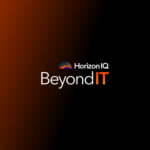Month: February 2011

What does innovation really mean in IT?
My previous post on America’s declining education rankings in the world got me thinking more about innovation – what it really means and how to achieve it.
I think we tend to view innovation in IT as the invention of new technologies or “things.” Like IBM’s recent predictions on “Five Innovations that Will Change the World in Five Years,” including batteries that breathe air, personalized commuter routes and cities running on waste heat from data centers.
And these are certainly valid – and exciting – developments. But to me, innovation is more than invention – it can be a new application or re-application of an existing technology or concept. For businesses, it’s really about a new way of thinking that extends from the product itself all the way through to the sales and marketing strategy, customer acquisition and the overall business model.
What role does leadership play in driving innovation?
And, it’s not just about hiring a bunch of smart people and locking them in a room. One thing that I’ve seen throughout my career is the vital nature of leadership. Successful companies build a strong “culture of innovation” that not only fosters creativity, passion and freedom of process but that incents it as well.
What is the key component of meaningful innovation?
First and foremost though, the key component of successful and meaningful innovation is timeless. Those at the forefront of innovation in IT are and always have been customer-driven.
Consider Apple over the last ten years – transforming the audio player with the iPod and now paving the way to the tablet era with simplicity and ease-of-use innovations that have become signatures of their brand. Or, the transformational shift to Internet video – with new innovations playing out weekly in both the consumer and enterprise markets.
What makes innovation successful in IT?
Successful innovation in IT delivers new ideas and products that are more than novelties – that make the way we play more fun and the way we work more productive and efficient.
What innovations have shaped your life and what’s next?
What innovations made the most impact on your personal and work life over the last decade? What types of innovations do you hope to see in 2011 and beyond?
Explore HorizonIQ's
Managed Private Cloud
LEARN MORE
Stay Connected

I am pleased to announce our support for World IPv6 Day in the following press release.
Please stay tuned for more announcements!
FOR IMMEDIATE RELEASE
VOXEL MEDIA CONTACT: Zachary Smith +1 212.812.4190 x.2110 / pr@voxel.net
VOXEL ANNOUNCES SUPPORT FOR IPV6 ACROSS ITS VOXSTRUCTURE INFRASTRUCTURE AUTOMATION PLATFORM
Cloud and Hybrid Hosting Provider Voxel Will Participate in World IPv6 Day on June 8, 2011
NEW YORK, NY[FEBRUARY 8, 2011] – Voxel, a leading provider of hybrid Internet infrastructure and cloud hosting solutions, announced today that it will participate in World IPv6 Day – a 24 hour “test flight” of IPv6 technology sponsored by the Internet Society (ISOC). Voxel has invested significantly in developing IPv6 support across its entire product stack and is ahead of the curve in ensuring a successful transition for its customers.
“With the world now effectively out of new IPv4 address space, the v6 issue is front and center in the minds of our customers,” said Raj Dutt, Voxel’s Founder and Chief Technology Officer. “We’re proud to be leading the industry in IPv6 support on our services and our participation in World IPv6 Day demonstrates our commitment to aggressively meet the delivery requirements of our customer base.”
“2011 is pivotal for IPv6 deployment and it is encouraging to see many different kinds of businesses looking to the opportunities for continued growth that IPv6 brings to the Internet,” added Leslie Daigle, the Internet Society’s Chief Internet Technology Officer. “Companies like Voxel, who not only enable IPv6 for their own services, but also enable IPv6 for their customers, multiply the effect and accelerate progress towards a healthy future Internet.”
Voxel has been offering native IPv6 connectivity at no additional charge to its VoxCLOUD and VoxSERVER customers, as part of a Technology Preview, since October 2009. “Over the last year, our v6 preview has been hugely successful. We’ve enabled dozens of customers and worked through many integration challenges,” said Adam Rothschild, Vice President of Network Architecture at Voxel. “We believe our overall IPv6 readiness is among the best in the hosting industry”
As part of Voxel’s commitment to ensuring smooth IPv6 interoperability for its customers, the company is participating in World IPv6 Day on June 8, 2011. On that day, Voxel will join the likes of Google, Yahoo, Bing and Facebook, and publish IPv6 records for its public website, https://www.voxel.net, along with several of its high-profile content customers, including The Urban Dictionary (https://www.urbandictionary.com), FlightAware (https://www.flightaware.com), xkcd (https://www.xkcd.com), and DailyKos (https://www.dailykos.com).
“We’ve counted on Voxel for years to help power The Urban Dictionary, and be able to scale with us to millions of views per day while ensuring optimal user experience,” said Aaron Peckham, Owner of The Urban Dictionary. “We take a lot of comfort knowing Voxel is IPv6 ready and look forward to working with them to flip the switch in June.”
About Voxel Dot Net, Inc
Voxel delivers high-performance Internet infrastructure that is scalable, fully-supported and cost-effective. The company offers industry leading hosting services via VoxSTRUCTURE, its open automation platform, and its unique Universal Transfer bandwidth aggregation model. Services include on-demand physical and virtual cloud servers, the VoxCAST Global Content Delivery Network (CDN), and a full suite of Managed Services for complex hosting deployments. The Company is headquartered in New York City and maintains strategic global hosting and network points of presence across the globe.
About the Internet Society
The Internet Society (https://www.isoc.org/) is a non-profit organisation founded in 1992 to provide leadership in Internet-related standards, education and policy. It is dedicated to ensuring the open development, evolution and use of the Internet for the benefit of people throughout the world.
Explore HorizonIQ's
Managed Private Cloud
LEARN MORE
Stay Connected

WAN optimization and application acceleration is definitely an established market, but the emergence of cloud services is making it more critical as the WAN becomes an enterprise’s lifeline to their data, applications and other content in the cloud. Even more importantly, the Internet is how online retailers, SaaS providers and other Internet businesses directly reach their customers.
Explore HorizonIQ's
Managed Private Cloud
LEARN MORE
Stay Connected

What Did Bill Gates Say About the State of U.S. Education?
A recent Newsweek story, “A Case of Senioritis”, includes excerpts from Bill Gates’ speech to the Council of Chief State School Officers. In the speech, Gates states, “If there’s one thing that can be done for the country, one thing…improving education rises so far above everything else!” The story also has some interesting figures: since 1995, the U.S. has fallen from 2nd in the world to 16th in college graduation rates, and it has fallen to 24th place in math (among 15-year-olds).
What’s Causing the Decline in Graduation Rates and Academic Performance?
This got me thinking about what is causing the drop in graduation rates, and what does the decline in academic performance mean for the future of U.S. engineering talent? On a broader scale, I also wonder what this means for the long-term future of the U.S. technology sector, because we need a steady flow of new engineering talent to drive and maintain technology innovation.
How Do Rising Costs and Outdated Policies Affect Education?
Clearly, the cost of a four-year college degree has increased significantly over the last 25 years, and tuition rates continue to rise sharply each year. Beyond college tuition costs, even bigger issues may exist at the K-12 level, where Gates feels that U.S. methods for teacher compensation are outdated and inefficient. Today, pay and promotions for most teachers is based on seniority, rather than performance, peer reviews and other factors. Naturally, Gates is hearing opposition from teacher unions and academic leaders for his views on this topic.
Are We at Risk of Exporting U.S. Engineering Talent?
Again, I wonder how these challenges – and the way we choose to address them – will impact us in regards to our math and engineering talent in the future. When I was working on my masters and PhD programs at Georgia Tech, a large percentage of my fellow students were not American. Are American colleges and universities simply training engineering talent from other countries that will then leave the U.S. upon graduation and return to their home nations to create technology companies of their own? Are we simply exporting top-level engineering skills and talent? How can we make math and science a priority again – starting with K-12 – to keep tech innovation strong in the U.S.?
What Do You Think About the Future of U.S. Tech Talent?
I would like to hear what some of the engineering students and academics out there have to say … let me know what you think!


